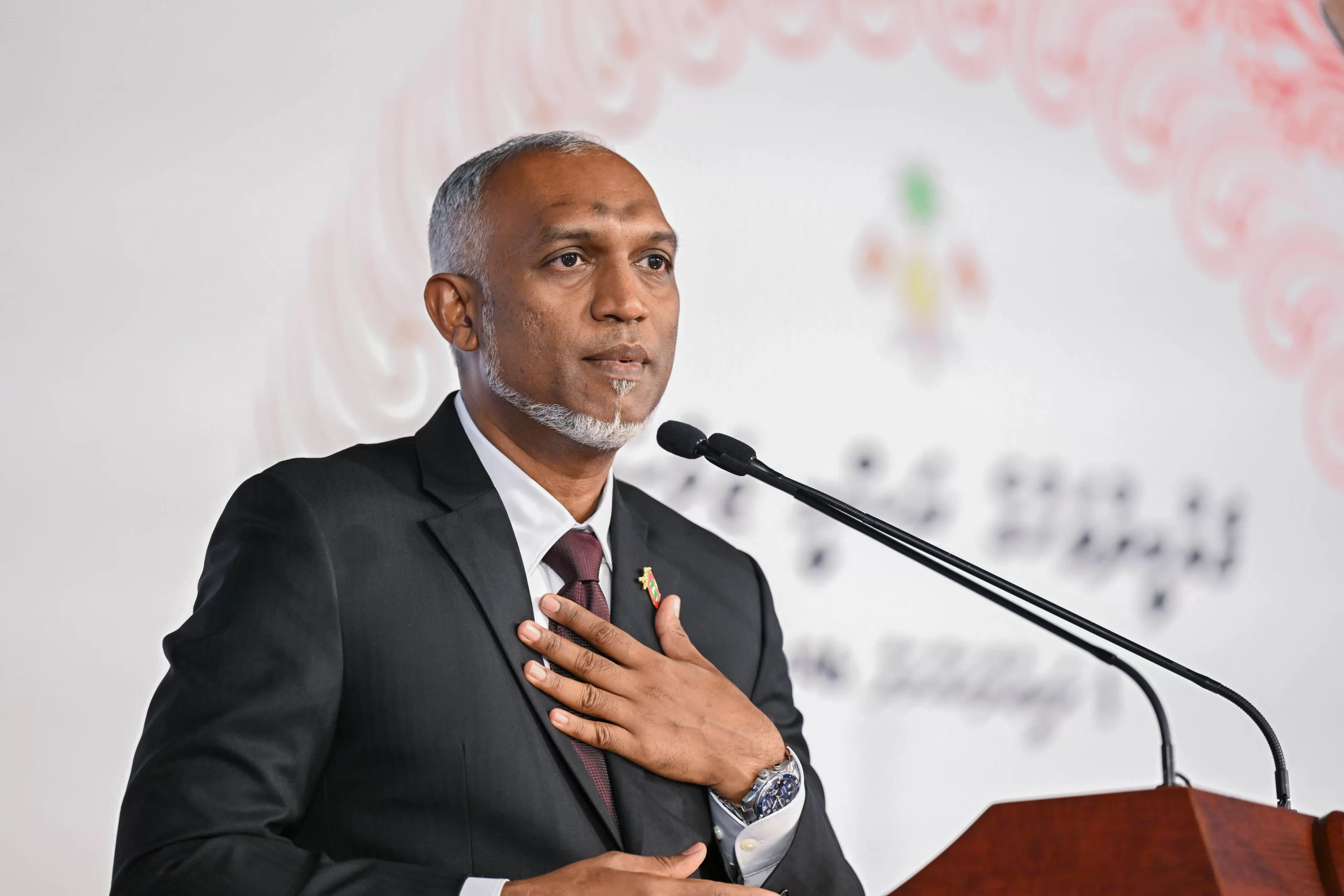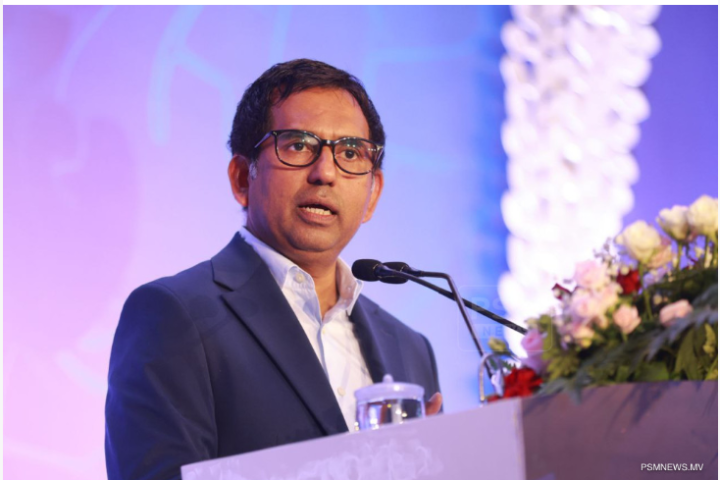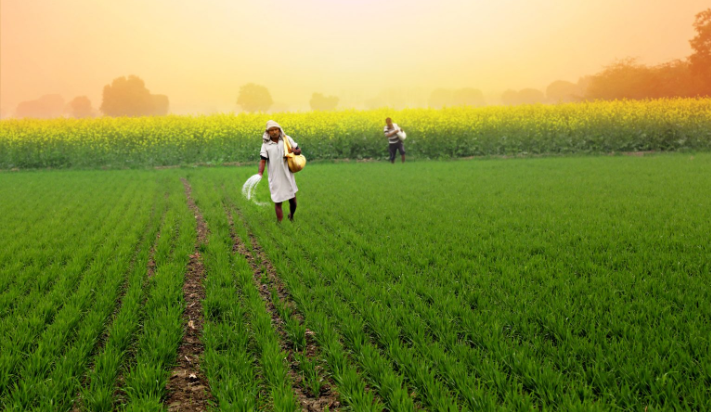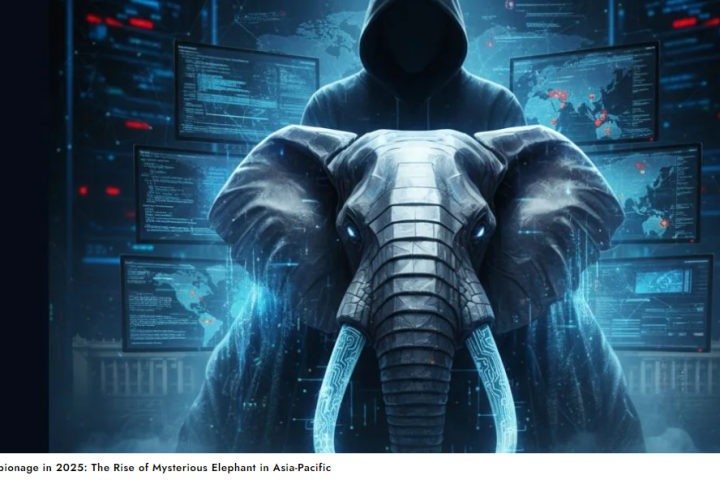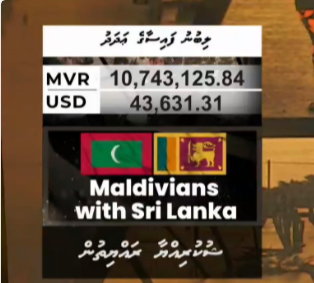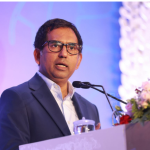MALE’, Maldives — In what may be the longest address ever delivered by a Maldivian head of state, President Mohamed Muizzu used the National Day speech to outline a vision for the country that heavily emphasizes Maldivian nationalism, Islamic identity, and wariness of foreign influence.
The speech, which lasted close to an hour, touched on themes ranging from cultural preservation to national security, all underpinned by a call to return to what Muizzu described as core Maldivian and Islamic values.
“Looking back on distant times, history has always shown that there are foreign eyes watching Maldives. Foreign hands that sought to harm our nation,” Muizzu said, in a thinly veiled reference to regional powers that have historically sought influence in the strategically located island nation.
The president’s remarks come at a time of increasing geopolitical tension in the Indian Ocean region. Muizzu proudly declared, “The people of the Maldives have always been heroes of freedom. It is in the nature of Maldivians to remain free-spirited. I base my entire policy on this principle. That is why there are no foreign troops in the Maldives today.”
This statement may raise eyebrows in New Delhi, given recent moves by Male’ to distance itself from India.
The speech, laced with nationalistic rhetoric from the outset, felt more like a written essay than a rallying call. Its structured and formal tone, heavy with Islamic and historical references, lacked the spontaneity and emotional resonance typically expected from such addresses. Rather than engaging the audience with passion, it seemed to emphasize intellectual arguments, leaving some listeners disconnected from the intended message.
Throughout his address, Muizzu repeatedly stressed the importance of preserving Dhivehi language and culture, framing these elements as crucial to maintaining national sovereignty. He announced plans to establish a national college dedicated to studying and promoting Maldivian nationality and heritage.
Some facts in the speech could be debated on their factual basis. A notable example is the description of Hussain Salaahudeen solely as a writer, when, in fact, he is widely credited with establishing the formal education system in the country—a point long recognized by educational circles.
Additionally, Salaahudeen’s profound influence on the intellectual landscape of the Maldives, particularly for his contributions to the development of the Dhivehi language, cannot be overlooked. Despite not being a foreign-educated scholar, he gained his knowledge through traditional learning with instructors in Addu Atoll Meedhoo, further solidifying his legacy in the country’s intellectual history.
The speech also heavily emphasized Islamic teachings and morality as guiding principles for Maldivian society. Muizzu called for a revival of Islamic customs in daily life, presenting this as a solution to what he termed as moral decline.
Critics may view the president’s focus on traditional values and Islamic identity as a move towards a more conservative social policy. However, supporters are likely to see it as a necessary step to protect Maldivian culture in an era of rapid globalization.
The economic implications of this nationalist turn remain unclear, though Muizzu suggested that cultural preservation is linked to the country’s development goals. However, despite the country’s ongoing economic hardships, Muizzu did not elaborate on these challenges.
In a speech that touched on power and influence, President Muizzu stated, “Power and influence will always rest with those who control the country’s wealth or resources. These resources will be acquired through hard work and skill.” However, as the Maldives derives 25 percent of its GDP from tourism, much of that wealth is in foreign hands, with earnings often deposited in overseas accounts. In the tourism sector alone, 22,000 Maldivians are employed, compared to 35,000 foreigners, who dominate key managerial positions, from auditing and finance to human resources and supply chains.
Given the recent raids on illegal foreign workers and the growing public awareness of how they control small businesses, many had expected the president to address these pressing concerns. Instead of rhetoric, the occasion called for concrete proposals on workforce training and a legal framework to “Maldivianize” the industry. Currently, foreign workers remit approximately USD 800 per person, sending a staggering USD 500 million abroad annually—money that could be reinvested in the local economy with a more localized workforce.
As the Maldives navigates its position in an increasingly complex geopolitical landscape, Muizzu’s speech signals a potentially significant shift in the country’s domestic and foreign policy orientations. The coming months will likely reveal how these rhetorical flourishes translate into concrete policy actions.
